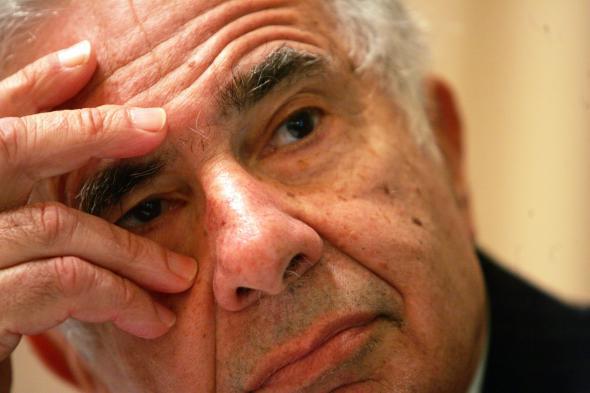Trump administration conflicts of interest come in many forms. There are those created directly by the president himself, those raised by his family members both inside and outside the White House, and those posed by his most senior advisers, such as Kellyanne Conway. But the New York Times on Monday highlighted yet one more area of concern: Trump’s informal, unpaid advisers—specifically billionaire investor Carl Icahn.
During his presidential transition, Trump named Icahn as a special adviser on regulatory matters and has kept him on in that role this year. “His help on the strangling regulations that our country is faced with will be invaluable,” Trump said in a December statement lauding Icahn, who was an early supporter of Trump’s unlikely presidential campaign and has an estimated net worth of $16.6 billion. It appears that, in his new role, Icahn has already proved to be a valuable asset to himself. Among the red flags spotted by the Times:
- Icahn has aggressively pushed for the Environmental Protection Agency to rework an otherwise obscure rule on how corn-based ethanol is mixed into gasoline. He pressed Scott Pruitt on the matter during an interview with Pruitt for his current job as EPA chief, later raised the matter with one of Trump’s top economic advisers, and ultimately talked about it with the president himself during a phone call last month. Of note here is that Icahn is the majority owner of CVR Energy, a Texas oil refiner that has claimed to have spent $205.9 million last year to comply with the rule and that desperately wants to see it scrapped. Since Trump was elected, CVR’s stock price is up about 50 percent.
- Icahn has weighed in on who should be the new head of the Securities and Exchange Commission. Icahn’s investment portfolio includes major stakes in several companies that have recently found themselves in the commission’s crosshairs, including CVR and Herbalife, as well as a number of other business ventures in highly regulated industries.
- Icahn has pushed a global mining company he helps run, Freeport-McMoRan, to be more aggressive in its fight with Indonesia over one of the company’s contracts to mine gold and copper in Southeast Asia. Icahn says he hasn’t intervened with the White House directly on the matter. However, the company has asked for help from the State Department, Commerce Department, and the White House, according to its CEO.
- Despite the president’s current regulatory freeze, his administration allowed a new IRS rule to go into effect in late January that would give qualifying oil and gas companies a corporate tax break. Icahn cited the rule as a major reason he first invested in CVR several years ago and appears well-positioned to benefit from the change.
All that understandably has Democrats and like-minded watchdog groups furious. “This is a mile out of bounds by any standard,” Sen. Sheldon Whitehouse told the Times. “Were the shoe on the other foot, Republicans would be having fits about any Obama relationship like this.” Whitehouse and several of his fellow Democrats are sending a letter to the Office of Government Ethics and the Justice Department this week to object to Icahn’s ongoing roles. The OGE, however, can’t do much more than ask nicely that the White House behave, and the DOJ ultimately reports to President Trump—so, yeah, good luck with that.
The defense put forward by Icahn and the White House, meanwhile, is that there is nothing to see here because Icahn’s role is technically an informal and unpaid one, which they claim means he is not subject to the same ethics laws as official staff. “I’m not making any policy, I am only giving my opinion,” Icahn told the Times. “He is simply a private citizen whose opinion the president respects and whom the president speaks with time to time,” White House spokeswoman Kelly Love added.
That, though, should do nothing to allay anyone’s concerns. It’s become standard operating procedure for this White House to use vague descriptions of individual staff responsibilities to shield them from serious ethics questions. The Trump administration intentionally avoids publicly defining roles and policy portfolios, and then turns around and claims advisers can’t have conflicts of interest. Again: The unofficial White House ethics plan is not to have one.
